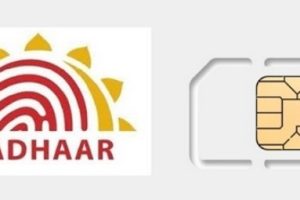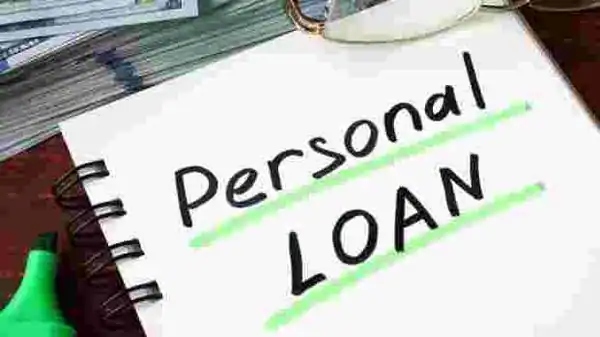Selecting the optimal payment plan for your personal loan entails evaluating various factors to determine the option that aligns best with your financial circumstances and objectives. Here’s a breakdown of essential points to keep in mind:
Interest rate and loan term
Lowest interest rate: Aim for a personal loan with the most competitive interest rate to reduce the overall cost of borrowing throughout the loan duration.
Loan term consideration: Opting for a shorter loan term results in higher monthly payments but reduces the total interest paid. Conversely, a long-term loan yields lower monthly payments but increases the total interest paid over time.
Striking a balance
Assess your budget: Take stock of your monthly earnings and expenditures to establish a manageable monthly payment. Overextending yourself could result in financial stress.
Evaluate prepayment options: Check if the loan permits early repayment with minimal or no penalties. This grants you the flexibility to expedite loan repayment if you come into extra funds.
Other considerations
Loan amount: The total borrowed amount influences both your monthly payment and overall interest expense. Borrow only what’s necessary.
Additional fees: Be aware of potential processing fees and other charges like origination fees. Include these in your comprehensive loan comparison.
Here are steps to help you find the ideal payment plan:
Explore options: Compare rates and terms from various lenders.
Utilise a personal loan calculator: These tools assist in estimating monthly payments for different loan amounts and terms.
Assess your objectives: Determine if your focus is on swift loan repayment or maintaining low monthly payments.
By taking these factors into account, you can select a personal loan payment plan that aligns with your budget and supports your financial objectives.
Frequently Asked Questions (FAQs)
Q. What paperwork is required for a personal loan application?
The required documents for a personal loan application can differ based on the lender, but here’s a general checklist:
Proof of identity
Passport
Driver’s License
Voter Identification Card
Aadhaar Card (India)
Proof of address
Utility bill (electricity, water, phone) – Not older than three months
Passport (address is mentioned)
Leave and license agreement
Proof of income
Salary slips (latest three months) for salaried individuals
Bank statements (latest three months) showing salary credit
Income Tax Returns (ITRs) for self-employed individuals or businesses
Audited financials for businesses (if applicable)
Additional documents
Passport-sized photographs (requirements may vary by lender)
Employer contact information (for salaried individuals)
Proof of office address and ownership (for self-employed individuals)
Proof of business existence (for businesses)
Optional documents (depending on lender)
Proof of investment (if any)
Co-signer information (if applicable)
Q. What’s the usual timeframe for personal loan approval?
The approval duration for a personal loan can vary based on the lender and your specific circumstances, but it generally falls into these categories:
Quick approval (as fast as a few hours): Online lenders or banks with whom you have a strong existing relationship may provide rapid approvals, sometimes within the same business day. This is often the case for smaller loan amounts and when you have a well-established credit history with the lender.
Standard approval time (One to three business days): This timeframe is typical for many lenders. They typically conduct a thorough review of your application, including verifying your information and running a credit check, before making an approval decision within a few business days.
Extended approval time (up to a week or more): In certain situations, the approval process may take longer, especially if your application requires additional review. This could be due to factors like complex income structures (such as freelancers or business owners), a lower credit score necessitating manual verification, or incomplete documentation.
Q. What other options exist besides personal loans?
There are various alternatives to personal loans that you might consider, each with its own advantages and drawbacks:
Credit cards
Pros: Widely accepted, may offer rewards, may have introductory 0% APR periods.
Cons: High interest rates after introductory periods, the potential for overspending, requires good credit.
Home equity loans or HELOC
Pros: Potentially lower interest rates, good for larger financing needs.
Cons: Requires homeownership and equity, puts your home at risk if you default, complex application process.
Salary advance
Pros: Quick access to cash, helpful for emergencies.
Cons: High fees, temporary solution, may not be available from all employers.
Peer-to-Peer (P2P) loan
Pros: Competitive rates, may be an option for those with less-than-perfect credit score.
Cons: Interest rates can vary, less predictable approval compared to traditional lenders, platform fees.
Savings
Pros: No interest charges, readily available if you have savings.
Cons: Not immediate, reduces emergency fund if used.
Credit union loans
Pros: Competitive rates, flexible terms, easier qualification if a member.
Cons: Requires credit union membership, may have eligibility criteria, not as widespread as banks.
The best option for you depends on factors like the amount needed, interest rates, repayment terms, and risks. Consider your specific needs and financial situation before deciding.
Q. What minimum credit score is required to be eligible for a personal loan?
While there isn’t a universal minimum credit score requirement for personal loan approval in India, most lenders seek credit scores ranging from 720 to 750 and higher to grant favorable interest rates and loan conditions.
Q. What effect does applying for a personal loan have on my credit score?
Applying for a personal loan can impact your credit score in a few ways, both positive and negative. Here’s a breakdown of what to expect:
Hard inquiry
Every time you formally apply for a loan, including a personal loan, the lender performs a hard inquiry on your credit report. This inquiry can cause a temporary dip in your credit score, typically by a few points. It’s important to note that multiple hard inquiries within a short period (usually considered within 30 to 45 days) can have a more significant impact on your credit score compared to a single inquiry. This is because lenders might view this as you being “credit hungry” and potentially a higher risk borrower.
New credit
Obtaining a new loan, such as a personal loan, is categorised as “new credit” by credit agencies and is incorporated into your credit score.
Potential positive impact
Regular and timely payments on your personal loan can notably boost your credit score over time, showcasing responsible credit handling and enhancing your creditworthiness. Also, maintaining a balanced mix of credit types, including installment loans like personal loans and revolving credit such as credit cards, can have a positive effect on your credit score according to certain credit scoring models.
The short-term decrease caused by a hard inquiry typically has minimal impact and rebounds within a few months, especially with a strong credit history and responsible credit management. Over time, the potential benefits of timely payments and a diverse credit portfolio can surpass the temporary dip from the hard inquiry.
Source By: livemint










